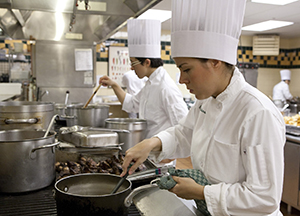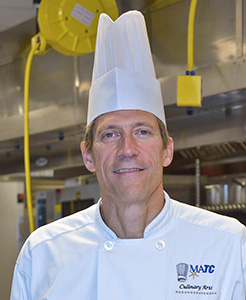The Culinary Institute of America Announces Major in Applied Food Studies
Tuesday, 07 October 2014 13:26
 A new degree is designed to prepare graduates to influence the future of food.
A new degree is designed to prepare graduates to influence the future of food.
The Culinary Institute of America (CIA)is launching a new bachelor’s degree major in applied food studies, with classes to begin in January 2015 at the CIA’s Hyde Park, N.Y., campus. The new major joins existing bachelor’s degrees in management and culinary science. Management majors can also pursue concentrations in advanced beverage and hospitality management, farm-to-table cooking and Latin cuisines. Together, these majors and concentrations give CIA graduates many food-career options to influence the future of the way the world eats.
The new major offers students an in-depth understanding of global food resources, policy and cultures, and their interconnections. Courses such as Anthropology of Food, Food Ecology, Food History and Social Science complement the college's foundational classes covering culinary fundamentals, world cuisines, banquets and restaurant cooking. Together they prepare graduates to impact the issues facing food systems from a chef’s perspective.

 This second in a two-part series on teaching culinary arts through ratios in practical culinary labs focuses on incorporating ratios into your lesson plan.
This second in a two-part series on teaching culinary arts through ratios in practical culinary labs focuses on incorporating ratios into your lesson plan. As Tater Tots® hit the Big 60, the Idaho Potato Commission celebrates six decades of tot-inspired menu creativity.
As Tater Tots® hit the Big 60, the Idaho Potato Commission celebrates six decades of tot-inspired menu creativity.